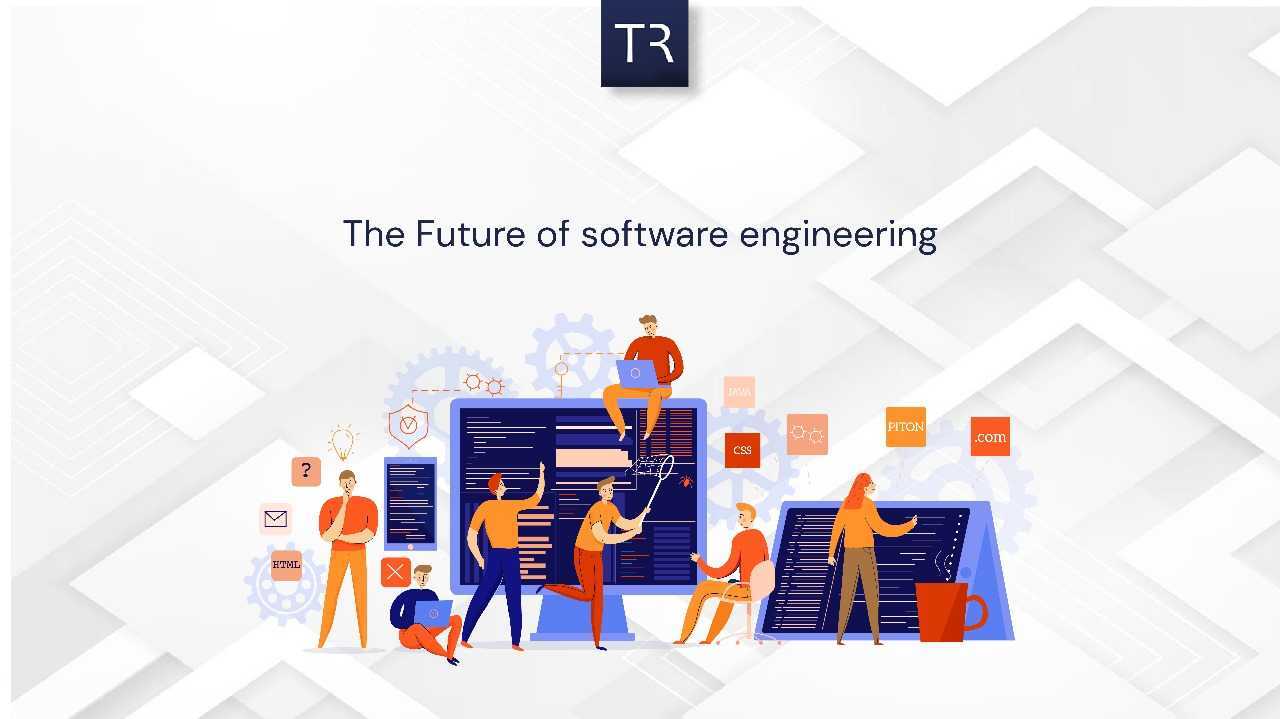Physical address:
573 Hutchinson Ln, Lewisville, TX 75077, USA.
Software engineering is the backbone of the digital age. It powers everything from the apps on your smartphone to the complex algorithms running global financial systems. As the world becomes increasingly digital, software engineering is evolving at a breakneck pace. Let’s dive into what lies ahead for this transformative field. In this blog we will have an insight on the future of software engineering.
Table of contents
- Key Trends Shaping the Future
- Technologies to Watch
- The Role of AI in Software Engineering
- New Methodologies and Approaches
- Challenges Facing the Industry
- How Software Engineers Can Prepare for the Future?
- Case Studies of Innovation
- Future Trends in Collaboration and Teamwork
- Predictions for the Next Decade
- Conclusion
- FAQs
Key Trends Shaping the Future
Rise of Artificial Intelligence in Development
AI is no longer just a buzzword—it’s a game-changer in software development. From generating code snippets to predicting bugs before they occur, AI is revolutionizing how engineers approach their work.
Cloud Computing’s Dominance
The cloud has become a critical infrastructure for businesses. Future software engineering practices will heavily rely on cloud-native solutions, ensuring scalability and reliability.
The Era of Low-Code and No-Code Platforms
These platforms are democratizing software development, enabling non-technical individuals to create functional applications. While this trend raises questions about the future role of traditional developers, it also opens doors for innovation.
Growth of DevOps and Automation
DevOps practices are becoming the norm, streamlining development and operations. Automation tools further enhance productivity by reducing manual effort and errors.
Technologies to Watch
Blockchain Beyond Cryptocurrency
Blockchain technology is making waves in supply chain management, healthcare, and more. Its potential for creating secure, decentralized systems is immense.
Internet of Things (IoT) Integration
IoT devices are becoming smarter and more interconnected, requiring sophisticated software to manage and analyze data effectively.
Quantum Computing and Its Potential Impact
While still in its infancy, quantum computing holds the promise of solving problems that are currently unsolvable with traditional computing methods.
The Role of AI in Software Engineering
AI-Powered Code Generation
Imagine writing just a few lines of instructions and having AI generate entire modules of code. Tools like GitHub Copilot are already taking us in this direction.
Enhancing Software Testing with AI
AI can identify patterns and anomalies that are easily missed during manual testing, ensuring more robust software.
Predictive Analytics for Better Decision-Making
AI algorithms can analyze past projects to predict timelines, costs, and risks, allowing for better planning.
New Methodologies and Approaches
Shift Towards Agile 3.0
The next evolution of Agile focuses on adaptability and integration with AI, ensuring even greater flexibility in project management.
Continuous Integration and Continuous Delivery (CI/CD)
CI/CD pipelines are becoming essential for fast and reliable software updates, reducing the time to market.
Microservices Architecture
Breaking applications into smaller, manageable services allows for faster updates and better scalability.
Challenges Facing the Industry
Security Concerns in a Digital World
As software becomes more complex, vulnerabilities increase. Cybersecurity will remain a top priority.
Bridging the Talent Gap in Software Engineering
The demand for skilled software engineers far exceeds supply. Addressing this gap will be crucial for future innovation.
Managing Legacy Systems
Balancing the need for modernization with the operational constraints of existing systems is a persistent challenge.
Related links you may find interesting
How Software Engineers Can Prepare for the Future?
Embracing Lifelong Learning
The rapid pace of change means staying updated is no longer optional. Engineers must continually learn new skills to stay relevant.
Acquiring Cross-Disciplinary Skills
Understanding fields like data science, AI, or cybersecurity can make engineers more versatile and valuable.
Networking and Collaboration
Building connections within the industry and participating in open-source projects can provide exposure to cutting-edge practices.
Case Studies of Innovation
AI-Driven Development at Big Tech Companies
Companies like Google and Microsoft are leveraging AI to accelerate software development, setting benchmarks for the industry.
The Use of Blockchain in Fintech
Blockchain applications in finance are transforming how transactions are recorded and verified, ensuring transparency and security.
Future Trends in Collaboration and Teamwork
The Role of Remote Work in Software Development
The shift to remote work has changed how teams collaborate, relying on tools like Slack and Zoom for seamless communication.
Open Source Communities and Their Influence
Open-source projects are fostering innovation by encouraging collaboration across borders and industries.
Predictions for the Next Decade
The Convergence of AI and Software Engineering
AI will not just assist but actively participate in the software engineering process, making development faster and smarter.
Fully Autonomous Software Development
The dream of fully autonomous development, where systems build and improve themselves, is on the horizon.
Conclusion
The future of software engineering is incredibly bright, driven by innovations in technology, methodologies, and collaboration. Staying ahead requires adaptability, continuous learning, and a keen eye on emerging trends. Engineers who embrace these changes will shape the digital world of tomorrow.
FAQs
- What will be the biggest challenge in the future of software engineering?
Cybersecurity and managing legacy systems will remain significant hurdles. - How will AI impact the role of software engineers?
AI will enhance productivity and efficiency, but engineers will need to adapt to new tools and workflows. - Is low-code development a threat to traditional software engineers?
Not necessarily. It complements traditional development and allows engineers to focus on more complex tasks. - How can software engineers stay relevant in a rapidly changing field?
Continuous learning, acquiring cross-disciplinary skills, and networking are essential. - What industries will benefit most from advancements in software engineering?
Healthcare, finance, retail, and manufacturing are among the top beneficiaries.


